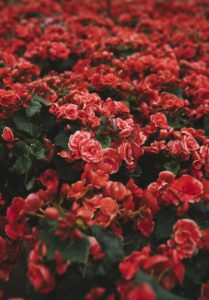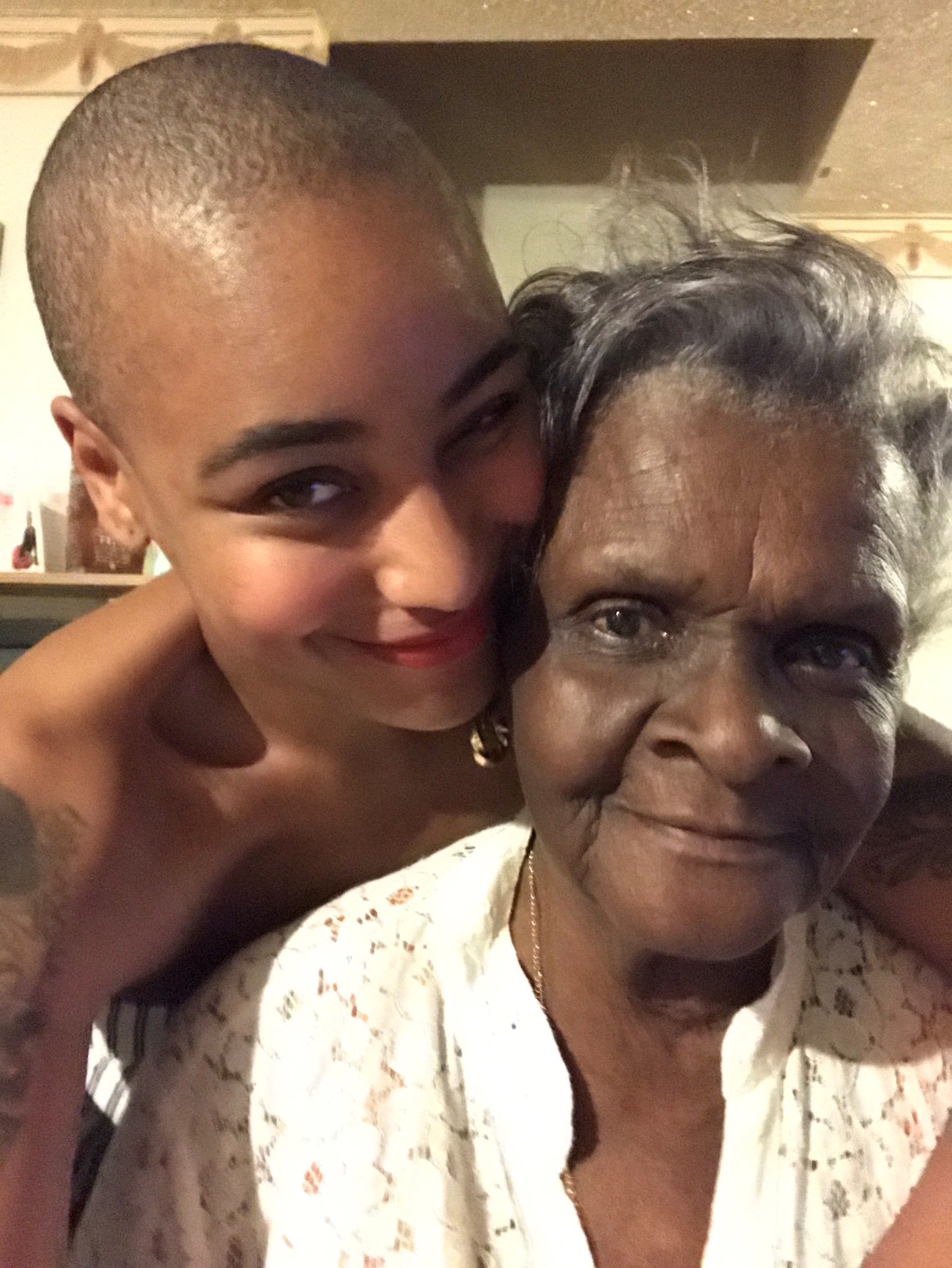 A couple of weeks ago, I found myself standing at my kitchen counter with an arm full of flowers. The rosy red carnations were for my ancestor altar: the space in my home dedicated to those, known and unknown, who have passed before me. The most recent addition to this corner of my world has been my mother. She died in December, shortly before COVID reached its fever pitch.
A couple of weeks ago, I found myself standing at my kitchen counter with an arm full of flowers. The rosy red carnations were for my ancestor altar: the space in my home dedicated to those, known and unknown, who have passed before me. The most recent addition to this corner of my world has been my mother. She died in December, shortly before COVID reached its fever pitch.
I stood in my kitchen, sunlight dappling the flowers and counter surface. I carefully selected each, slowly trimmed the stems, arranged them from shortest to tallest, and thoughtfully slipped them into the vase. I would place them all, step back to eye my handiwork, decide against it, and start over. Eventually, my inner voice kicked in. “Oh, just get on with it! You have better things to do with your time than fuss around with flowers.” Before I could stop myself, another inner voice replied. “I may die tomorrow. I may die next week. Hell, I may die in the next 15 minutes. There are worse ways to spend these moments of my life than admiring flowers.” Then I paused to check in with the steady rise and fall of my breath and smiled as I picked the carnations back up.
These are the moments that my work as an end-of-life doula has unearthed in me. For those unfamiliar: an end of life doula (a.k.a death doula, death midwife, or death guide) is a nonmedical person who offers holistic (physical, emotional, and spiritual) support to a person/their community at the end of life. This can look like: advocating for a client’s final wishes, community outreach and education around death, dying and end of life care, providing spiritual support, aiding with advanced directive paperwork, assisting with the creation of legacy projects, and more.
These are just a few of the ways we walk alongside our clients. Holding this space does bring up the question: “Can you ask a client to sit with and delve deeper into the thought of their death without exploring your own?” The answer: “You can’t, really. It is almost impossible to do this work well without engaging with your own mortality.” I believe we owe it to ourselves and those for whom we hold space to be with our own deaths. And that is what I have been doing. I have been intentionally engaging with my mortality. This does not automatically mean I am at utter, blissful peace with the knowledge that I will die. Not by a long shot. But it does mean I have been consciously engaging with my thoughts around my mortality. It means that death is no longer an unacknowledged stranger. For better or worse, death is working its way up to an acquaintance, attempting to slip its hand into mine. Some days we walk closer, some days farther. Now, in the thick of COVID and the aftermath of my mother’s passing, death moves me along, kicking, wailing, and screaming.
Even so, engaging with my death has allowed my life to become lush, more profound, and complex. It has pushed certain things into sharp focus. It motivates me to have the difficult, awkward conversations I would have put off a few years ago. “Oh, there is plenty of time for that.” I am now increasingly aware that there may not be. As I lie on my deathbed, I want to know I said all I need to be at peace with myself. To not lie there and think, “What if I had said this? What if I had told that person I love them?” Putting things into perspective in this manner makes the difficulty of those conversations worth it.
For me, most of these hard conversations have been with my family and friends. The first tough conversation was explaining to them that I wanted to become a death doula. I was expecting them to possibly (read: probably) be weirded out by my desire. This expectation comes from how we are socialized around death. For many, it is a topic that is ignored, avoided, and spoken about in whispers. It can inspire vast amounts of discomfort, dread, and anxiety. And here I was, wanting to dive right into the deep end. However, the more I shared my motivation, the more wonderfully inquisitive and supportive they became.
As I learned about the use and importance of advanced directives, I began to ask my friends if they had their own. The more excited I became about natural burials, the more information I shared with them. At first, these conversations were tentative on both sides. I was hesitant to share what I was learning for fear of being perceived as “morbid.” They were uncertain about asking further questions because of their anxiety around discussing death. And, more importantly, because they had never been asked those questions before. However, slowly but surely, my family, friends, and I became more comfortable in these initial conversations. We gave ourselves permission to lean into the discomfort. They gave themselves permission to be curious. I realized that there is no perfect time, place, or way to start these discussions. But at the end of the day, this imperfect time may just be the right time. The right time for self-reflection, the right time to ask those uncomfortable questions around death. By leaning into those questions and staying curious, we open ourselves to deeper relationships with not only our loved ones but ourselves. And I, for one, am glad to walk alongside my community as we embark on our journeys of life, and death, together.
Want to keep connected to The Conversation Project? Sign-up for our newsletter(s), follow us on social media (Twitter, Facebook), download our materials and feel free to reach us at ConversationProject@ihi.org.



As a certified end of life doula (UVM), chaplaincy student and longtime hospice volunteer I hope that others reading this article will see the absolute necessity in having “the conversation “. Having it now helps with the spiritual pain from the shock of a sudden death or incapacitating accident where voices can’t be heard. We all have this one life, right now, I hope to live mine to the end in peace and love.
Beautifully said
I’d like to offer a conversation to a group of people who volunteer through Zoom using your materials. Can you offer suggestion as to how to begin. Thanks
Your story was very moving to me. I have also wondered what a death doula did and how they approached this line of Caring. What I didn’t know was that you also work with individuals and families in all the other details that might be important, things to check off their list, and things that you may want others to remember you by. Your chosen field of work is honorable and an amazing purpose in life; giving others peace, without being along at the time of our death.
Thank you for sharing.
I would like to become a Doula.
I lilve in México.
Can I do it on line?
Naomi,
Thank you for sharing such a heartfelt story. I am an End of Life Doula and I definitely identify with the importance of examining our mortality. The experience and insights that are gained from doing our own internal work bring with it knowledge and wisdom to better serve the dying and their family. Thanks again for sharing.
Val Walker
Doula by Destiny